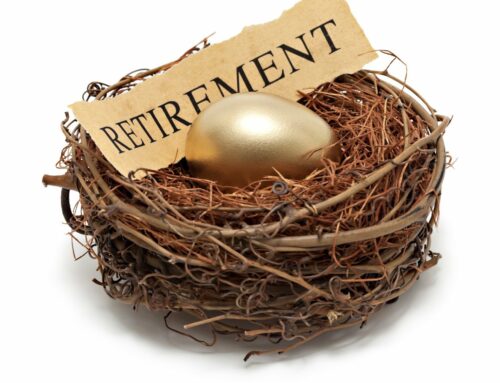The globalized age of the Internet has deepened an already uncomfortable fact of human society: shame. Classroom bullying has migrated to text and social media. Business reputation is more Yelp or Angie’s List than word of mouth. But how much does the power of public shame actually affect our behavior?
There is dissent over how much peer pressure can motivate, and, of course, this can include pressures over retirement preparations. In one study, nearly a third of respondents said they made positive financial decisions based on how they felt about falling behind their peers in savings and salary. However, in another study, the same kind of peer pressure demoralized participants. It had the opposite effect; learning they were so far behind the curve made respondents less likely to sign up to participate in their company’s retirement savings plan.
Thankfully, we don’t worry about “keeping up with the Joneses” when we help people craft their retirement income strategies. After all, the success of your planning will be judged against your goals, your expectations and your lifestyle, not anyone else’s. Contact us if you would like our guidance in helping you get on the right track for financial confidence.
[CLICK HERE to read the article, “How peer pressure can help you save for retirement,” from Bloomberg, June 9, 2015.]
[CLICK HERE to listen to the report, “Why Peer Pressure Doesn’t Add Up To Retirement Savings,” from NPR, July 31, 2015.]
So, amid the tools available for manipulating behavior, whether that of an individual, company, sector, country or global initiative, how effective is “naming and shaming”?
At least one customer-service poll indicates, at least at the corporate level, it isn’t terribly effective. In an age when companies known for superior customer service can be few and far between, some companies are better known for their poor customer service than for their products or services. It should be no surprise, then, which companies made this year’s “Customer Service Hall of Shame” in a recent poll by 24/7 Wall St., which was dominated by representation in the cable/satellite and banking sectors. Several of the companies on this list are repeat offenders; some for seven years running.
The fact they don’t improve customer service despite suffering from such a bad reputation begs the question: Does shaming EVER work?
[CLICK HERE to read the article, “Customer Service Hall of Shame,” from Yahoo Finance, July 31, 2015.]
The authors of “Shame and the Motivation to Change the Self” (Emotion, December 2014) would argue it does. They maintain the human experience of shame is associated with a motivation to change, and that it can be a positive factor of personal growth.
For instance, peer pressure can make us more charitable. A study published in The Economic Journal revealed that when asked to give to a charity, donors would investigate others’ past donations to help them determine how much to give. Their contributions had more to do with “keeping up with the Joneses” than how they felt about the charity’s mission. The study concluded large donations served to put pressure on other donors, who were then driven to display their own wealth via similar donated amounts.
[CLICK HERE to read the article, “Shame and Motivation to Change,” from Psychology Today, Jan. 29, 2015.]
[CLICK HERE to read the article, “This Little-Known Tactic Gets People to Donate to Online Fundraisers: Peer Pressure,” from Huffington Post, June 18, 2015.]
Certainly, when it comes to traditional, interpersonal shame (the kind that existed even in the nostalgic days pre-Internet), it continues to be a powerful tool of society. In small villages in a Himalayan valley where people rely on each other to share, cutting off your neighbor’s access to water and power can result in being cast out. Perpetrators are not just cut off from access to the resources they denied their neighbor. The other villagers stop speaking to the offenders altogether. The very power of this shaming tactic is what keeps inhabitants alive and thriving in these hardship areas.
[CLICK HERE to read the article, “The Power of Peer Pressure,” from Slate.com, March 25, 2015.]
We are an independent firm helping individuals create retirement strategies using a variety of insurance products to custom suit their needs and objectives.
The information contained in this material is provided by third parties and has been obtained from sources believed to be reliable, but accuracy and completeness cannot be guaranteed; it is not intended to be used as the sole basis for financial decisions.
If you are unable to access any of the news articles and sources through the links provided in this text, please contact us to request a copy of the desired reference.





